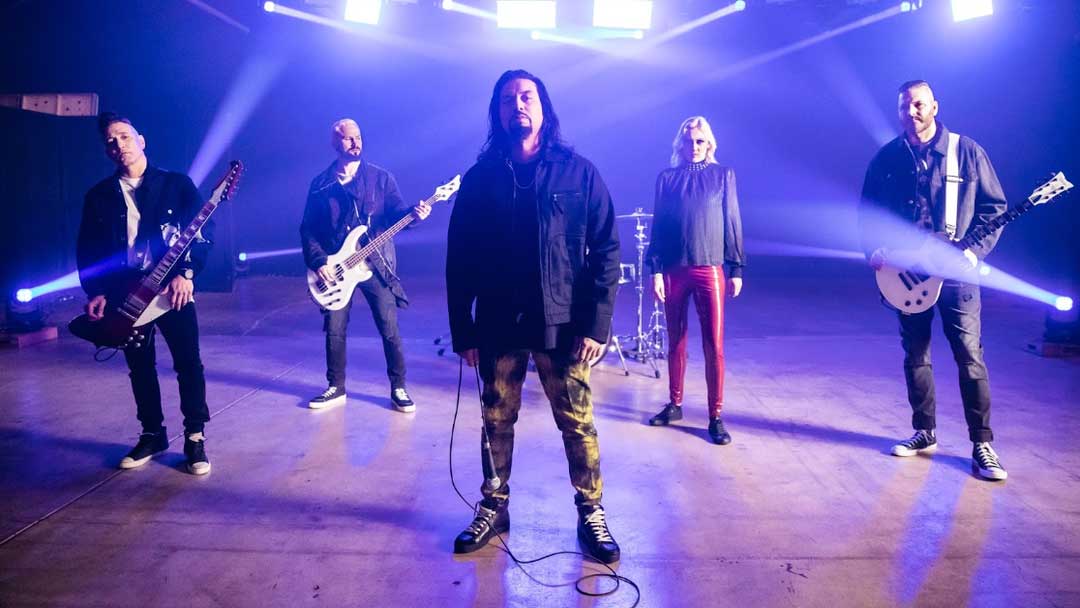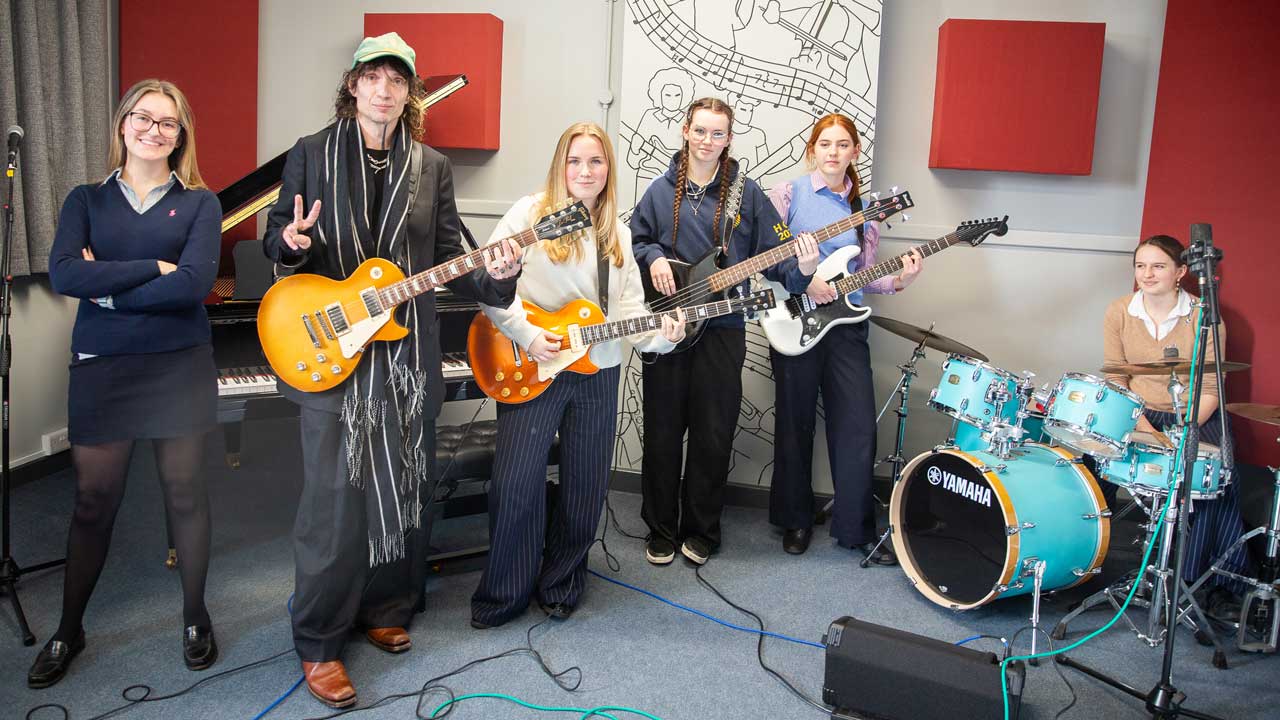Pop Evil: "I think back to all those bands that helped when doctors, parents, teachers weren’t there for me"
Pop Evil frontman Leigh Kakaty on getting punched in the face, rock‘n’roll therapy, and teenage run-ins with the law

Nobody comes to Pop Evil for a quiet night. Citing such play-on-10 stalwarts as Metallica and Stone Temple Pilots, the black-clad heavy mob from Michigan have shaken the room since their formation in 2001.
Seventh album Skeletons is perhaps the band’s most seismic yet, splicing an alt.rock edge with a hit of metalcore, alongside lyrics that seem like primal-scream therapy for a world facing down its mental health demons.
Singer Leigh Kakaty tells us more.

What’s the significance of the new album’s title, Skeletons?
It’s simple. We all got ’em, right? Whether they’re the skeletons in our past or even just the bones themselves. Musically there was certainly more aggro swirling around our band for this album. It’s got very aggressive guitar tones. We wanted to make sure you could bob your head and your horns would go up. Live we don’t just sit there and play, we get in your face and try to ‘prove’ these songs to you.
What subjects did you cover with the new songs?
Dead Reckoning is a kind of brutal motivational song. It’s about looking at yourself in the mirror and facing the fact that it’s got to start with you; you can’t put the blame on somebody else. It’s like: “I gotta face it, baby. Let’s go. Keep punching me in the face, I’m gonna keep moving forward”. I wrote Worth It for my kids, but it’s also for anyone out there whose parents never told you they loved you, when you just wanted to hear those words, man.
Sign up below to get the latest from Classic Rock, plus exclusive special offers, direct to your inbox!
You’ve said that you hope this album this album helps some of those struggling with mental health issues.
Yeah. When it comes to my mental health, it’s more of a depression because we’re trapped on a tour bus. My dad passed away, and I felt like I was selfishly chasing this dream and I missed out on three or four years that I could have spent with him. So I put a lot of guilt to that. With my family nowadays, being gone for months at a time you definitely struggle. We want to leave our mark and certainly help people with our music. I think back to all those bands that helped when doctors, parents, teachers weren’t there for me.
You’ve always been evangelical about rock’n’roll. Why is this genre so important to you?
We started this journey when rock music was on a decline. We were pushing ourselves up a steep hill, when the musical landscape had shifted to hiphop, pop and country, and kinda abandoned us rockers. I can sing pop until the cows come home, and a lot of people said to us why don’t you just switch genres. And we had the opportunities. But it was like, I’m a rock guy, man. I grew up blue-collar in Michigan. I really feel indebted to this genre. I don’t care about the success.
What’s the most evil thing you’ve ever done?
Oh man, I remember shooting out a lot of windows with a BB gun as a kid. I was about fifteen. Some guys chased us. The cops came over to the house. Luckily the guy that did it with us was the sheriff’s son, so we got off with a warning. But I had a choice that day which path I was gonna go down. The very next morning, I committed to the guitar.
Skeletons is out now via MNRK Heavy.
Henry Yates has been a freelance journalist since 2002 and written about music for titles including The Guardian, The Telegraph, NME, Classic Rock, Guitarist, Total Guitar and Metal Hammer. He is the author of Walter Trout's official biography, Rescued From Reality, a music pundit on Times Radio and BBC TV, and an interviewer who has spoken to Brian May, Jimmy Page, Ozzy Osbourne, Ronnie Wood, Dave Grohl, Marilyn Manson, Kiefer Sutherland and many more.

